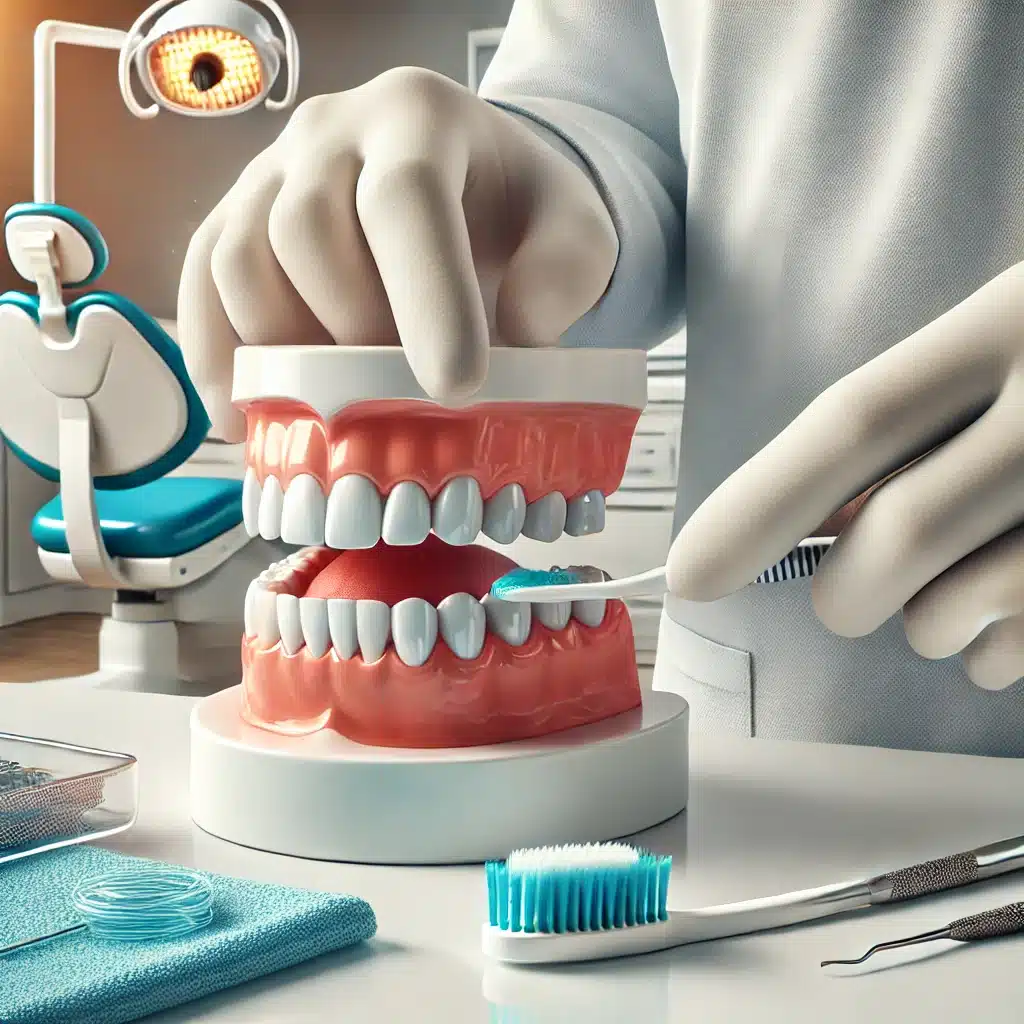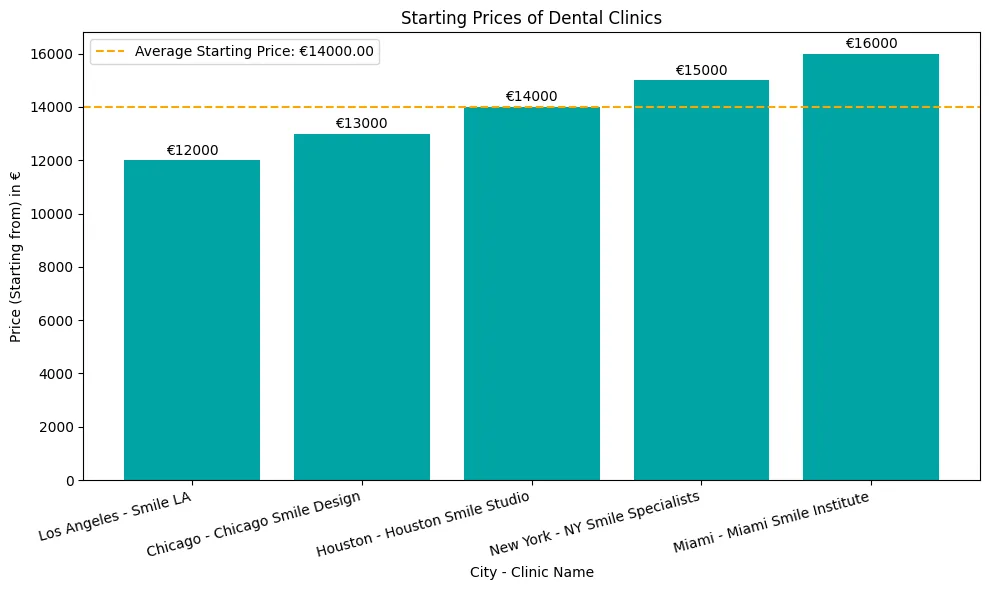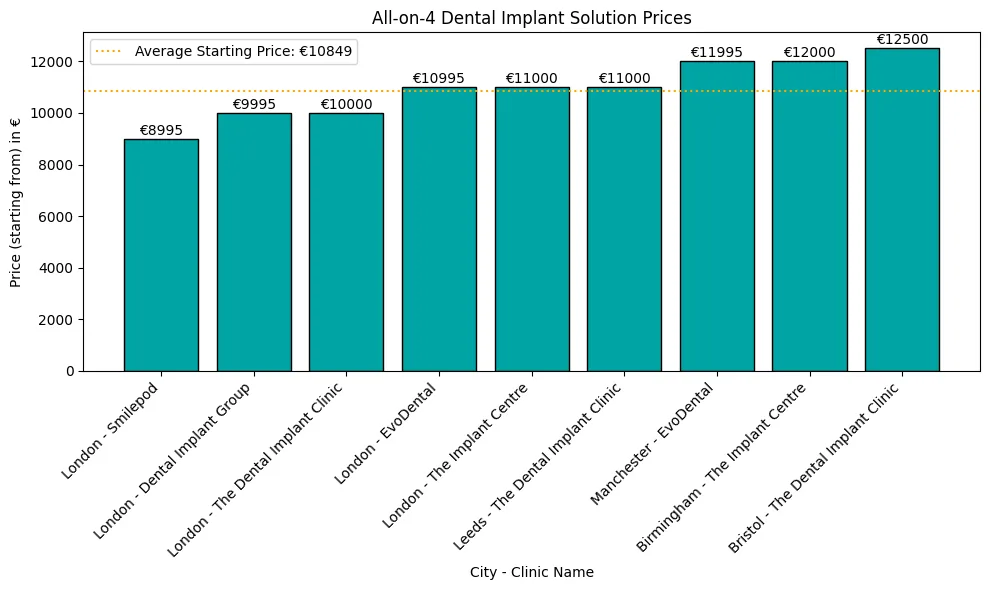Keni pyetje në lidhje me implantet dentare? Ju nuk jeni vetëm.
Shumë njerëz që kërkojnë një zgjidhje të përhershme për dhëmbët e munguar pyesin veten nëse implantet dentare janë zgjidhja e duhur dhe çfarë ato ofrojnë në të vërtetë.
A bëjnë implantet dentare…?
A ndikojnë implantet dentare në shëndetin tuaj?
Procedura e implantit dentar mund të shkaktojë probleme të tilla si infeksione, recesion të mishrave të dhëmbëve dhe dëmtim të nervave dhe indeve. Nëse keni ndonjë simptomë pas DIS, vizitoni dentistin tuaj.
A ndikojnë implantet dentare në shijen?
Implantet dentare nuk ndikojnë në shijen, disa pacientë mund të përjetojnë ndryshime të përkohshme në shije pas operacionit të implantit dentar. Këto ndryshime mund të jenë për shkak të traumave kirurgjikale, medikamenteve, ndjeshmërisë ndaj metaleve ose tharjes së gojës.
A ndikojnë implantet dentare në të folur?
Ata nuk do të ndikojnë në fjalimin tuaj
Njerëzit fokusohen aq shumë në përdorimin e gjuhës për të mbajtur protezat në vend, saqë është e vështirë të përqendrohen në të folurin siç duhet. Për shkak se implantet dentare janë të fiksuara në vend, zakonisht do të jeni në gjendje të flisni siç bëni zakonisht.
A funksionojnë gjithmonë implantet dentare?
Procedurat e implanteve dentare kanë një shkallë suksesi 95% pas kohës së shërimit.
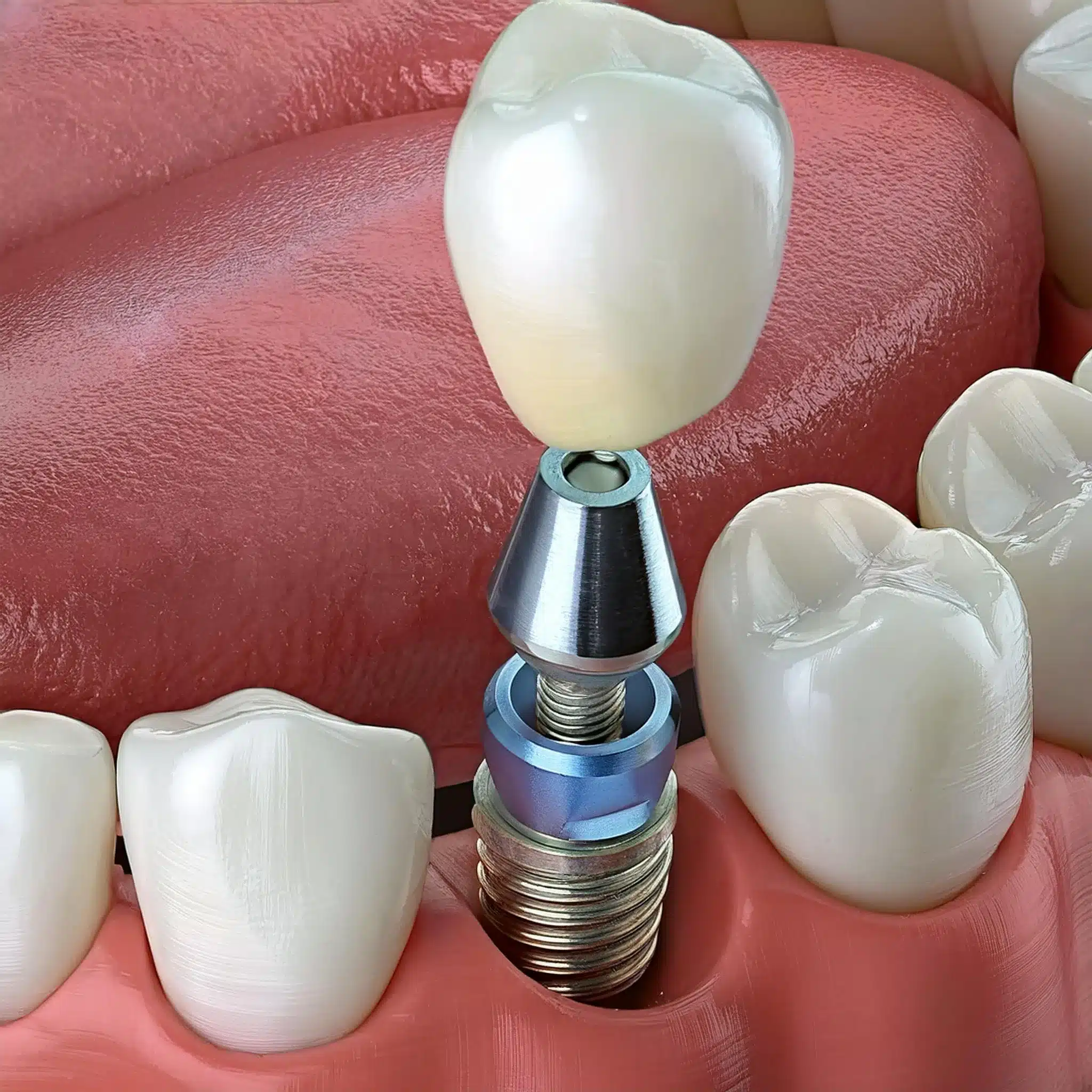
A kanë nevojë gjithmonë për transplante kockore implantet dentare?
Para së gjithash, jo të gjithë kanë nevojë për një transplant kockor përpara se të vendosin implante. Dentisti juaj do të vlerësojë rastin tuaj dhe do t'ju njoftojë nëse kërkohet një transplant. Nevoja për një transplant kockor mund të ndikojë gjithashtu në koston e përgjithshme të implanteve dentare, kështu që është e rëndësishme ta diskutoni këtë me dentistin tuaj gjatë vlerësimit tuaj.
A ndikojnë implantet dentare sigurinë e aeroportit?
Implantet dentare janë të vogla - 5 deri në 15 mm në gjatësi dhe 3 deri në 5 mm në diametër. Ata nuk janë mjaftueshëm të mëdhenj për të aktivizuar detektorët metalikë. Disa implante dentare janë bërë nga zirkonium, i cili është një metal. Por sasia e zirkonisë në implantet dentare është shumë e vogël për të vendosur shumicën e alarmeve.
A prishen implantet dentare?
Implantet dentare mund të thyhen nëse ushtrohet shumë presion para se të integrohen (lidhen) në nofullën tuaj. Pjesë të tjera të dhëmbit tuaj të ri gjithashtu mund të thyhen.
A rrjedh gjak implantet dentare?
Implantet dentare janë një metodë e shkëlqyer për restaurimin e dhëmbëve, sepse ato qëndrojnë në vend në gojën tuaj dhe parandalojnë humbjen e kockave. Por gjatë procesit të shërimit pritet pak gjakderdhje.
A lirohen implantet dentare?
Implantet dentare janë opsioni më i fortë i zëvendësimit të dhëmbëve. Por në raste të rralla ato mund të lirohen apo edhe të bien. Një implant i liruar ose i zhvendosur është një problem serioz, si një dhëmb i përhershëm i liruar ose i zhvendosur.
A hiqen implantet dentare?
Po, është e mundur të hiqet një implant dentar nga goja e pacientit, megjithëse konsiderohet një opsion i përhershëm i zëvendësimit të dhëmbit.
A përfundojnë implantet dentare brenda një dite?
Po, implantet dentare mund të bëhen brenda një dite përmes një procedure të quajtur "ngarkim i menjëhershëm" ose "implant në të njëjtën ditë". Në këtë proces, implanti dentar vendoset në kockën e nofullës dhe në të njëjtën ditë vendoset një kurorë e përkohshme.
A dalin implantet dentare?
Implantet dentare mund të bien për shkak të higjienës së dobët orale, humbjes së densitetit të kockave, kurorës së lirë, sëmundjes së mishrave të dhëmbëve ose kushteve mjekësore. Shenjat e një implanti dentar të lirshëm janë dhimbje, ënjtje, skuqje ose gjakderdhje e mishrave të dhëmbëve, humbje e dukshme kockore dhe një implant në lëvizje.
A vijnë implantet dentare në madhësi të ndryshme?
Një implant i rregullt dentar është 3.4 deri në 5.8 mm i gjerë, një mini implant është 1.8 deri në 3.3 mm i gjerë. Të dyja kanë të njëjtën gjatësi. Mini implanti është më i vogël, kështu që edhe njerëzit me nofull të ngushtë mund ta bëjnë atë.
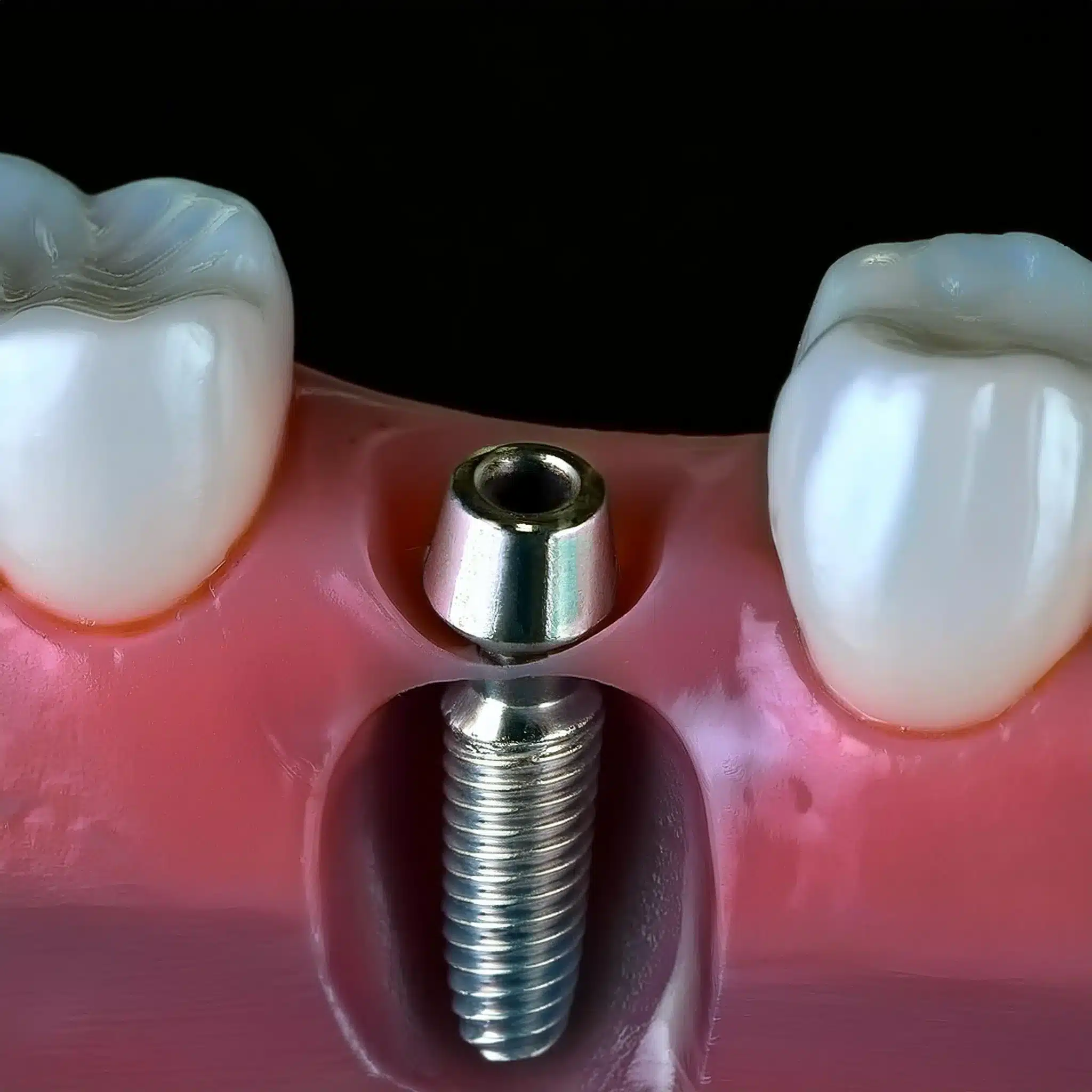
A dhembin implantet dentare?
Një implant i thjeshtë dentar për një pacient me kocka të mira dhe që nuk ka nevojë për shumë operacione të indeve të buta ka një nivel dhimbjeje prej 2 deri në 3 në 24 deri në 48 orët e para. Ilaçet pa recetë si Tylenol ose Advil do të kujdesen për çdo shqetësim që ata ndjejnë.
A shkaktojnë implantet dentare erën e keqe të gojës?
Nëse infektohen, implantet dentare mund të shkaktojnë erë të keqe. Për të shmangur erën e keqe të gojës dhe rreziqe të tjera, këtu janë disa mënyra se si mund të zbuloni, trajtoni dhe kujdeseni për implantin tuaj dentar të infektuar.
A shkaktojnë implantet dentare humbje kockore?
Vetë implantet dentare nuk shkaktojnë humbje kockore, por faktorë të ndryshëm mund të shkaktojnë humbje kockore rreth implantit dhe të çojnë në komplikime.
A shkaktojnë implantet dentare sëmundje të mishrave të dhëmbëve?
Ju mund të keni recesion të mishrave të dhëmbëve pas operacionit të implantit dentar. Nëse recesioni ndodh pas vendosjes së implantit, pasojat nuk ndryshojnë por mbeten të njëjta si dështimi i implantit.
A e dëmtojnë implantet dentare kockën?
Nëse implanti vendoset gabimisht ose me teknikë të dobët kirurgjikale mund të komprometojë kockën përreth dhe të shkaktojë humbje kockore.
A njollosin implantet dentare?
Implantet dentare janë bërë nga material porcelani rezistent ndaj njollave, por ato mund të njollosen me kalimin e kohës.
A skadojnë implantet dentare?
Implantet nuk skadojnë. Por ato mund të dështojnë për shkak të sëmundjes së shkaktuar nga integrimi i dobët ose i dobët i implantit me kockën e nofullës.
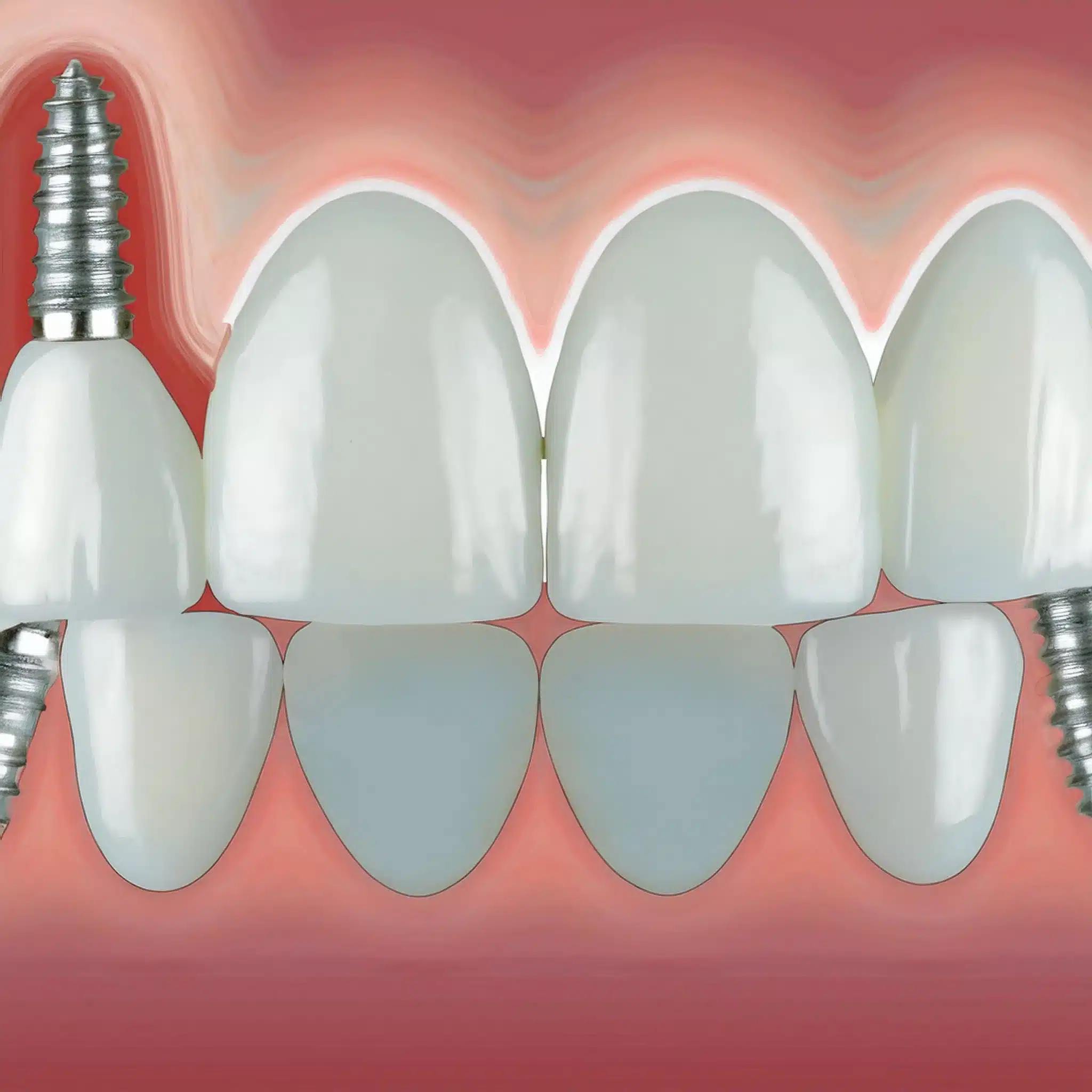
A ndihen natyrshëm implantet dentare?
Miti: Implantet nuk ndjehen kurrë natyrale si dhëmbët tuaj të vërtetë.
Përkundrazi, implantet rriten për t'u ndjerë natyrale ashtu si dhëmbët e vërtetë. Shtyllat e futura gjatë procedurës së implantimit përfundimisht bashkohen me kockën ekzistuese të nofullës, që do të thotë se vetë implanti nuk ndihet ndryshe nga kocka aktuale.
A ndihen të rëndë implantet dentare?
Implantet mund të ndjehen pak të çuditshme. Dhëmbët tuaj të rinj nuk do të përmbajnë mbaresa nervore, që do të thotë se ata nuk mund të ndjejnë presion ose temperaturë.
A infektohen implantet dentare?
Ndonjëherë, implantet dentare mund të infektohen, duke shkaktuar inflamacion në indet e buta dhe humbje kockore rreth implantit, shpesh nga një gjendje e quajtur Peri-Implantitis.
A marrin pllakë implantet dentare?
Po, pllaka mund të rritet në implante ashtu si mund të rritet në dhëmbë natyralë. Pllaka është një film ngjitës i baktereve që formohet në dhëmbë dhe mishrat e dhëmbëve dhe nëse nuk hiqet përmes praktikave të duhura të higjienës orale, mund të çojë në sëmundje të mishrave të dhëmbëve dhe probleme të tjera të shëndetit oral.
A refuzohen implantet dentare?
Trupi juaj mund të refuzojë një implant dentar. Por, lajmi i mirë është se është shumë i rrallë. Implantet dentare janë zëvendësimi më i përshtatshëm dhe më i qëndrueshëm për rrënjët e dhëmbëve, me deri në 98% të shkallës së suksesit.
A njollosen implantet dentare?
Përkundër faktit se implantet dentare mund të mos çngjyrosen, materiali lidhës dentar që i mban ato në vend është i ndjeshëm ndaj zbardhjes. Nuk është e pazakontë që njerëzit të përjetojnë njolla rreth skajeve të implanteve të tyre.
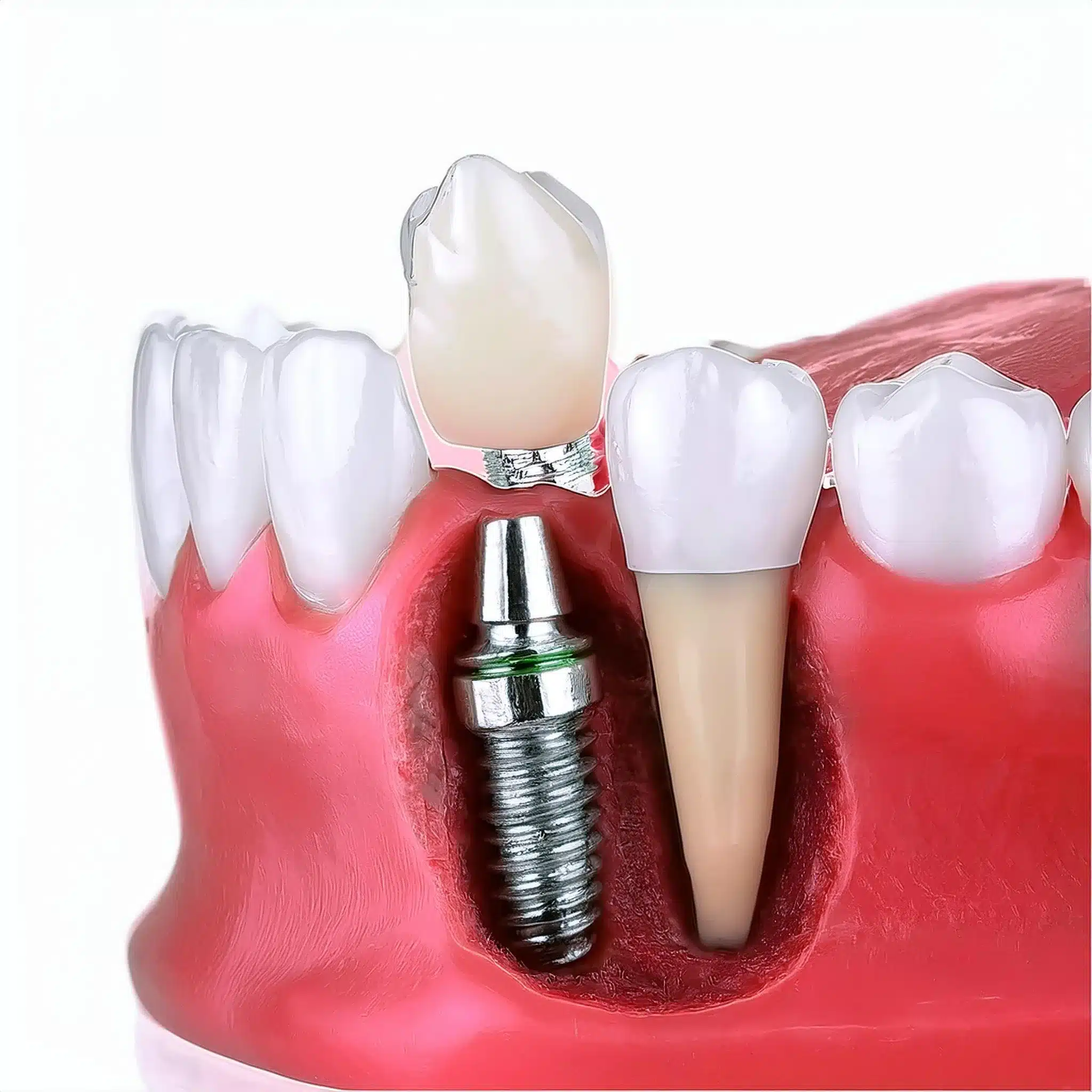
A përfshijnë implantet dentare kurorën?
Ai përbëhet nga një rrënjë, mbështetëse dhe kurorë. Ndërsa kurora mund të zëvendësohet për një kohë të gjatë, implanti (rrënja) është i përhershëm.
A përfshijnë implantet dentare përmirësimin e vijës së nofullës?
Implantet ndihmojnë në plotësimin e boshllëqeve të lëna nga dhëmbët që mungojnë, duke rikthyer volumin në faqet tuaja dhe duke i parandaluar ato të varen. Kjo mund t'ju japë një nofull më të përcaktuar dhe të përmirësojë simetrinë e përgjithshme të fytyrës tuaj.
A ndërhyjnë implantet dentare në skanimin CT?
Fatkeqësisht, nëse një pacient nuk mund të heqë protezat metalike dentare, ato do të shkaktojnë artefakte në imazhet CT. Këto artefakte mund të përhapen në imazhet PET përmes faktorëve të korrigjimit të dobësimit të bazuar në CT.
A e përmirësojnë shëndetin implantet dentare?
Jo vetëm që ndihmojnë në rivendosjen e buzëqeshjes dhe besimit tuaj, por ato gjithashtu ofrojnë përfitime të shumta për shëndetin tuaj të përgjithshëm oral. Nga parandalimi i humbjes së kockave deri te përmirësimi i aftësive të të folurit dhe të ushqyerit, implantet dentare ofrojnë një zgjidhje afatgjatë që mund të përmirësojë cilësinë e jetës tuaj.
A bien vetëm implantet dentare?
Implantet dentare mund të bien për shkak të higjienës së dobët orale, humbjes së densitetit të kockave, kurorës së lirë, sëmundjes së mishrave të dhëmbëve ose kushteve mjekësore. Shenjat e një implanti dentar të lirshëm përfshijnë dhimbje, ënjtje, skuqje ose gjakderdhje të mishrave të dhëmbëve, humbje të dukshme kockore dhe një implant në lëvizje.
A zgjasin përgjithmonë implantet dentare?
Jetëgjatësia mesatare e një implanti dentar është diku nga 10 -30 vjet. Kjo do të thotë që ka shumë të ngjarë, në varësi të moshës tuaj kur vendosni një implant, ai do të zgjasë për pjesën tjetër të jetës tuaj. Asnjë opsion tjetër i zëvendësimit të dhëmbëve nuk ka aftësinë të zgjasë kaq gjatë.
A lëvizin implantet dentare?
Implantet dentare janë projektuar të jenë restaurime të përhershme dentare dhe nuk duhet të lëvizin pasi të vendosen dhe të jenë shëruar.
A ju bëjnë implantet dentare të dukeni më të rinj?
Pas vendosjes së implantit dentar, shumica e pacientëve raportojnë se duken më të rinj dhe kanë më shumë besim. Kjo sepse ato ndihmojnë në ruajtjen e strukturës së fytyrës, duke ju dhënë një fytyrë më të fortë me rrudha më pak të dukshme.
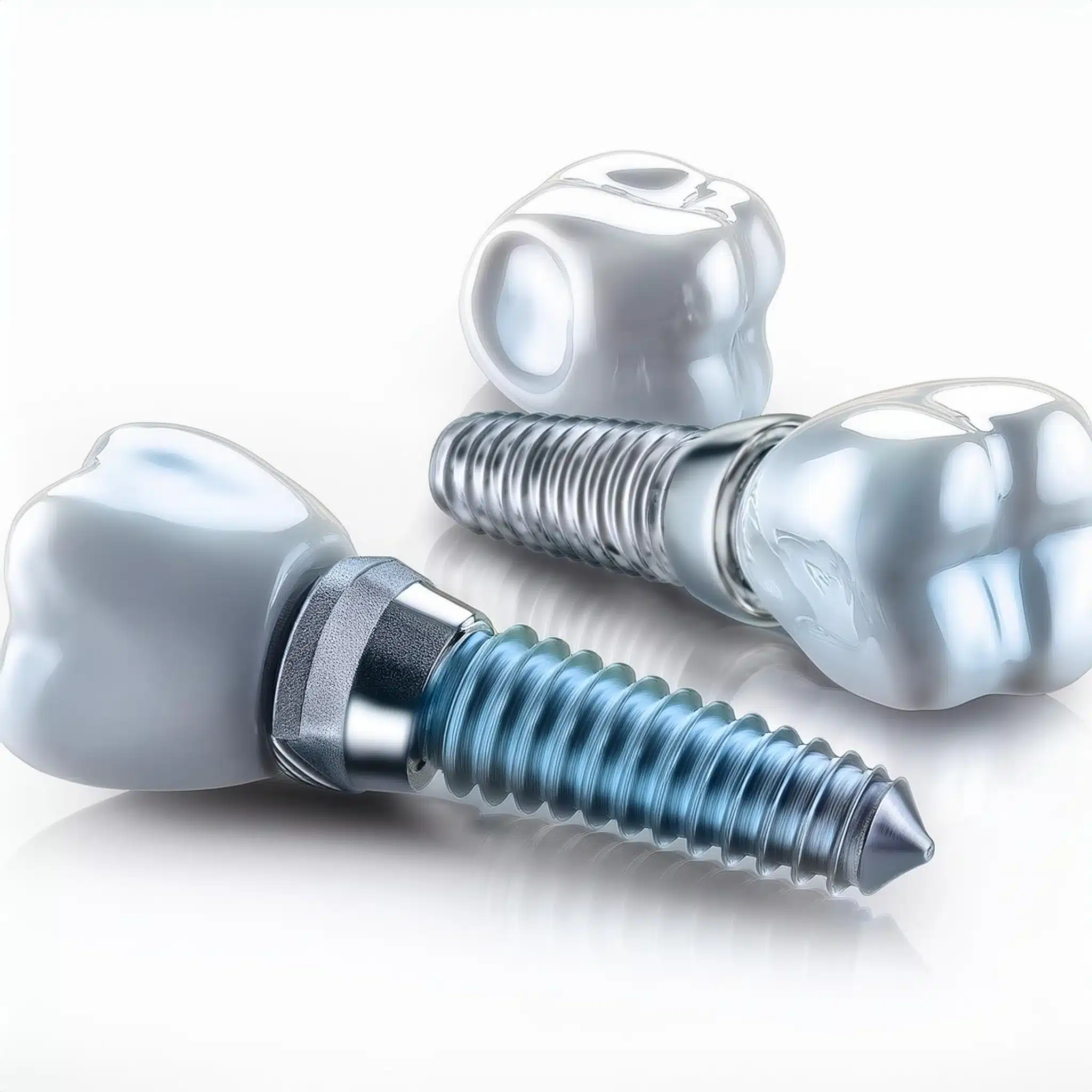
A përputhen implantet dentare me dhëmbët tuaj natyralë?
Implantet dentare janë bërë me porosi, kështu që ato përshtaten saktësisht me gojën tuaj, ndihen rehat dhe duken të natyrshme. Disa pacientë shqetësohen se implantet dentare nuk do të përputhen me dhëmbët e tyre natyralë, por absolutisht do ta bëjnë.
A duhen pastruar implantet dentare?
Meqenëse implantet dentare ngjajnë dhe funksionojnë si dhëmbët natyralë, ato gjithashtu mund të krijojnë pllaka. Prandaj, ju duhet t'i pastroni implantet tuaja çdo ditë për të parandaluar krijimin e tyre.
A kanë nevojë për mirëmbajtje implantet dentare?
Implantet dentare nuk kërkojnë kujdes të veçantë në krahasim me dhëmbët natyralë, por kanë nevojë për mirëmbajtje të duhur për të siguruar jetëgjatësinë e tyre dhe shëndetin e indeve përreth.
A kërkojnë kirurgji implantet dentare?
Implantet dentare kërkojnë një ose më shumë procedura kirurgjikale, ju duhet të keni një vlerësim të plotë për t'u përgatitur për procesin, duke përfshirë një: ekzaminim gjithëpërfshirës dentar. Ju mund të bëni rreze X dentare dhe imazhe 3D dhe të keni modele të bëra nga dhëmbët dhe nofullën tuaj.
A kërkojnë anestezi implantet dentare?
Në mënyrë tipike, anestezi e përgjithshme nuk është e nevojshme për kirurgjinë e implantit dentar. Megjithatë, ju mund të dëshironi ta keni atë opsion bazuar në preferencat dhe përvojat tuaja personale.
A ndryshken implantet dentare?
Shumë lloje metalesh mund të ndryshken në mjedise me lagështi, si goja juaj. Nuk duhet të shqetësoheni për ndryshkjen e implanteve tuaja dentare, sepse ato janë prej titani biokompatibël.
A vidhosen implantet dentare?
Në thelb të kësaj teknologjie dentare janë vidhat dentare, komponentë të vegjël por të fuqishëm që janë çelësi i suksesit të implanteve dentare. Këto vida, të njohura teknikisht si pajisje për implant, janë spiranca për dhëmbin artificial, duke siguruar stabilitet dhe mbështetje si një rrënjë dhëmbi natyral.
A përdorin implantet dentare metal?
Implantet dentare janë prej titani, megjithëse ato mund të jenë të lidhura me pak metale të tjera për qëndrueshmëri dhe forcë shtesë.
A funksionojnë implantet dentare për të gjithë?
Nëse keni sëmundje të mishrave të dhëmbëve ose probleme të tjera të shëndetit oral, mund të mos konsideroheni kandidatë të mirë për implantet dentare. Vetë procedura e implantit gjithashtu mund të përkeqësojë problemet ekzistuese të shëndetit oral, kështu që rregullojini ato përpara se të konsideroni implantet. Implantet dentare gjithashtu kërkojnë një nofull të fortë.
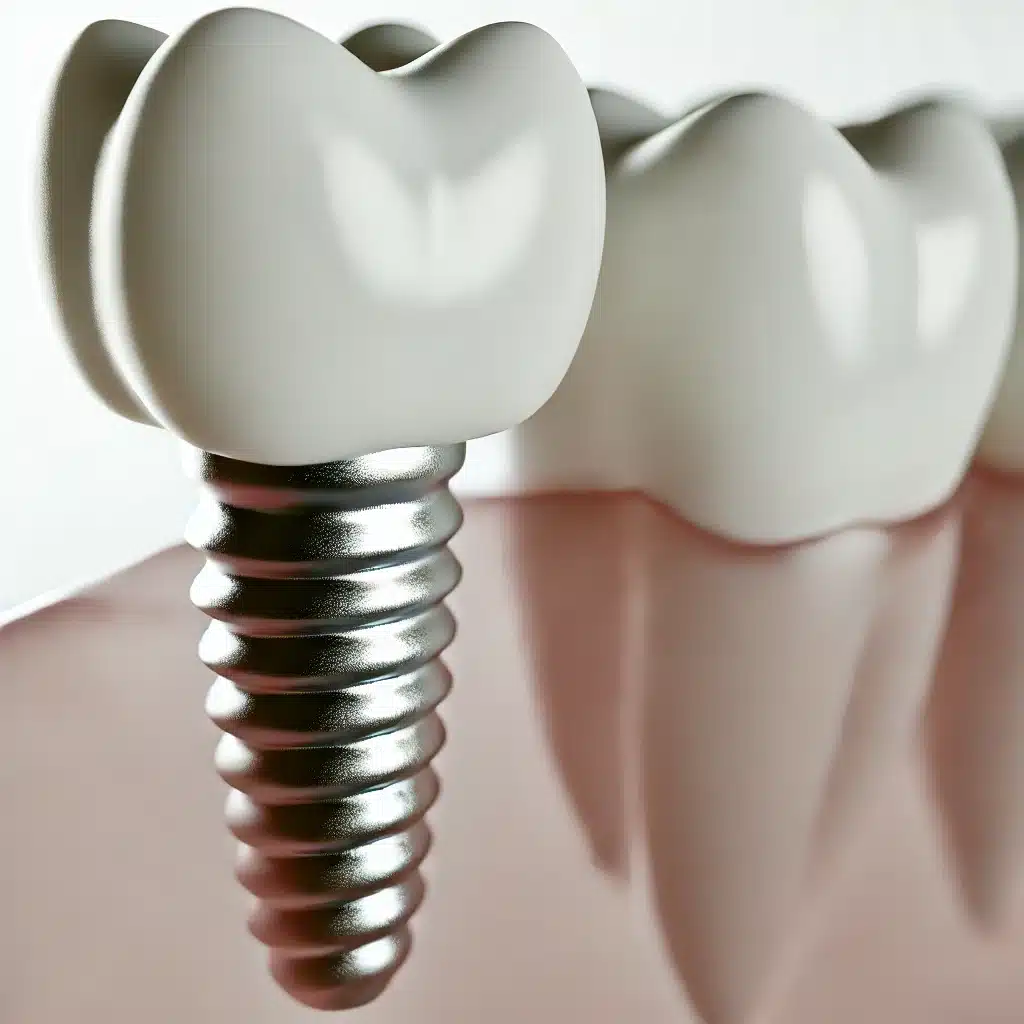
A janë implantet dentare..?
A janë implantet dentare një zgjedhje e mirë?
Duke marrë parasysh implantet dentare? Nëse po, do të dëshironi të dini të mirat dhe të këqijat e implanteve dentare. Sipas Akademisë Amerikane të Stomatologjisë së Implanteve, mbi 3 milionë njerëz në Shtetet e Bashkuara kanë implante dentare dhe ky numër po rritet çdo vit. Ndërsa implantet dentare janë një opsion i shkëlqyeshëm për shumë njerëz, ato nuk janë të përshtatshme për të gjithë.
A mund të kemi risitë më të fundit në teknologjinë e implanteve dentare?
Të risitë më të fundit të implanteve dentare në 2024 përfshijnë sisteme kirurgjike të drejtuara nga AI, implante inteligjente me biosensorë të integruar, implante të personalizuara të printuara në 3D dhe materiale të avancuara bioaktive. Këto teknologji arrijnë norma suksesi 98% përmes vendosjes së saktë të drejtuar nga kompjuteri, sipërfaqeve me nanostrukturë për osseointegrim të përmirësuar dhe protokolleve minimalisht invazive që reduktojnë kohën e shërimit me 50%.
A janë implantet dentare më të mira se protezat?
Ndërsa kushtojnë më shumë se protezat, ato zgjasin më shumë dhe ju kursejnë para me kalimin e kohës. Për më tepër, implantet dentare mund të përdoren për të mbështetur një protezë të pjesshme, duke rritur stabilitetin dhe mbajtjen e saj. Implantet dentare çojnë në më pak vizita te dentisti, sepse ato janë më të lehta për t'u mbajtur në krahasim me protezat.
A janë implantet dentare të dëmshme për shëndetin?
Implantet dentare në përgjithësi nuk janë të dëmshme për trupin. Megjithatë, pacientët që janë alergjikë ndaj titanit mund të zgjedhin një alternativë efektive si zirkonia.
A janë implantet dentare më të mira se kurorat?
Kurora dentare janë shumë më ekonomike sesa implantet dentare në fillim. Megjithatë, implantet mund të zgjasin dy herë më shumë se kurorat (shumë prej tyre mbeten përgjithmonë në gojë).
A mbulohen nga sigurimet implantet dentare?
Shumë kompani sigurimesh i konsiderojnë implantet dentare thjesht një procedurë kozmetike, dhe për këtë arsye jo të nevojshme mjekësore dhe nuk do t'i mbulojnë ato.
A janë implantet dentare të rehatshme?
Për shkak se ato bëhen pjesë e juaja, implantet mund të jenë më të rehatshme sesa protezat që rrëshqasin sipër mishit të dhëmbëve.
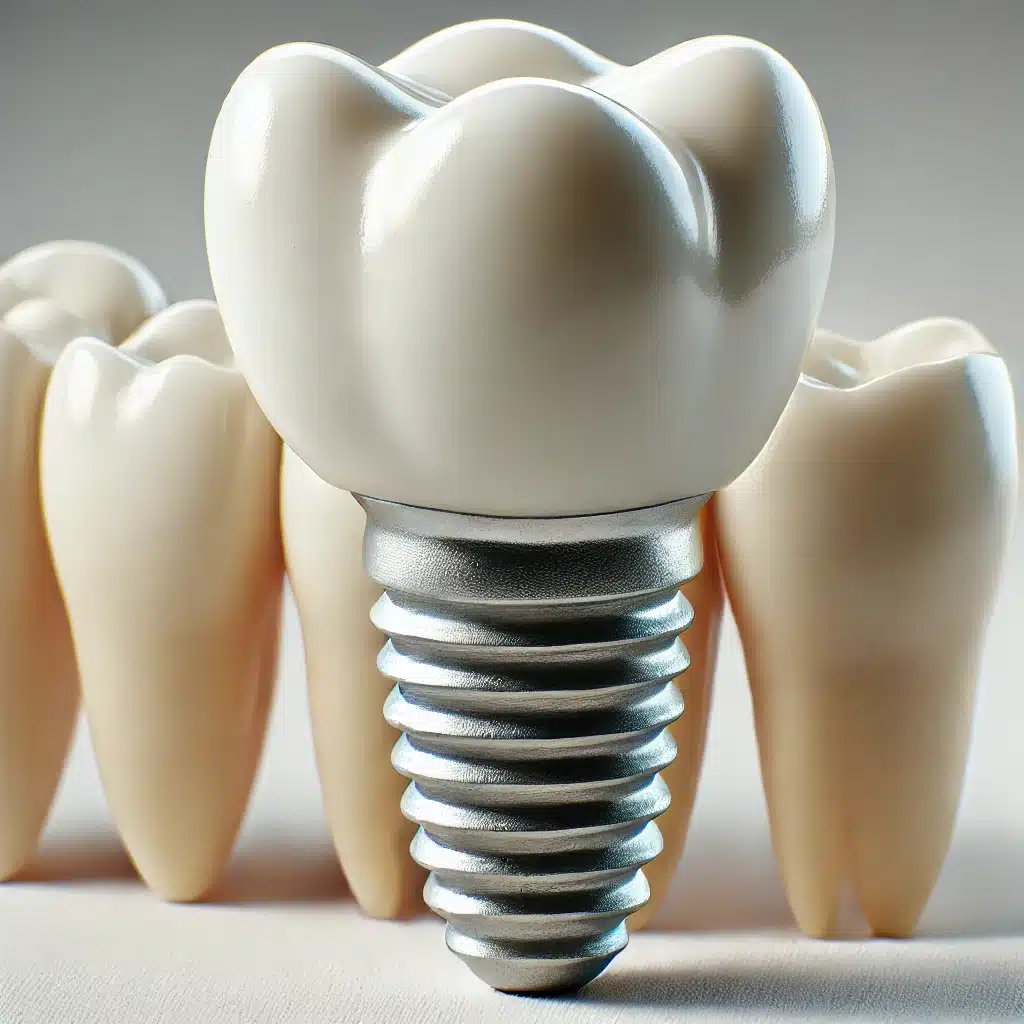
A janë të rrezikshëm implantet dentare?
Ekziston një rrezik i vogël që implantet dentare të dëmtojnë nervat që shkojnë në fytyrë dhe mishrat e dhëmbëve. Ju mund të keni dëmtime ose lëndime në strukturat që rrethojnë implantin tuaj, si dhëmbët tuaj të tjerë ose enët e gjakut.
A kushtojnë shtrenjtë implantet dentare?
Në përgjithësi, implantet janë një investim i përjetshëm dhe kanë çmime në përputhje me rrethanat. Levin vlerëson koston totale për dhëmb, nga fillimi në mbarim, zakonisht shkon midis $3,000 dhe $4,500, dhe një person që ka nevojë për një kafshatë implante po shikon një çmim përfundimtar midis $60,000 dhe $90,000. Ekspertiza e dentistit të implantit mund të ndikojë gjithashtu në koston e përgjithshme, pasi profesionistët me përvojë mund të paguajnë tarifa më të larta për shërbimet e tyre.
A janë implantet dentare të mira për të moshuarit?
Për fat të mirë, implantet dentare janë po aq efektive dhe të qëndrueshme në moshat më të mëdha. Implantet dentare shpesh ndryshojnë jetën e njerëzve të moshuar për mirë, duke u dhënë atyre një shëndet të mirë fizik dhe më shumë besim.
A po bëhen më të lira implantet dentare?
Materiali i implantit dentar dhe ekspertiza e një kirurgu oral e bëjnë koston mesatare të një implanti për një dhëmb të vetëm rreth $4800 në tregun e hapur. Pritja derisa implantet dentare të bëhen më të lira nuk ka gjasa ta ndryshojë këtë. Por për pacientët që janë të gatshëm të udhëtojnë, është e mundur të marrin të njëjtën ekspertizë dhe të njëjtat materiale me një çmim më të ulët.
A janë implantet dentare me rrezik të lartë?
Ashtu si me çdo lloj operacioni, ekziston rreziku i mundshëm që implantet dentare dhe indet përreth të kontraktojnë një infeksion. Megjithatë, për shkak të kushteve sterile në të cilat kryhen, infeksionet nga operacioni i implantit dentar janë jashtëzakonisht të rralla.
A janë të vështira për t'u mirëmbajtur implantet dentare?
Në fund të fundit, mund të jetë një supozim i drejtë të thuhet se implantet dentare janë të mirëmbajtjes së lartë. Megjithatë, kjo nuk do të thotë se ata janë të vështirë për t'u kujdesur ose për të kërkuar shumë punë. Në vend të kësaj, ata kërkojnë qëllimshmëri për të ruajtur higjienën e tyre dhe për të ruajtur shëndetin e përgjithshëm oral.
A janë implantet dentare invazive?
Ky operacion nuk është shumë invaziv dhe nuk është si kirurgjia tradicionale orale siç është nxjerrja e dhëmbëve. Stomatologjia moderne mundëson metoda më të shpejta dhe më të lehta kirurgjikale.
Përparimet në teknologjinë e implanteve e kanë bërë procedurën më pak invazive dhe më efikase.
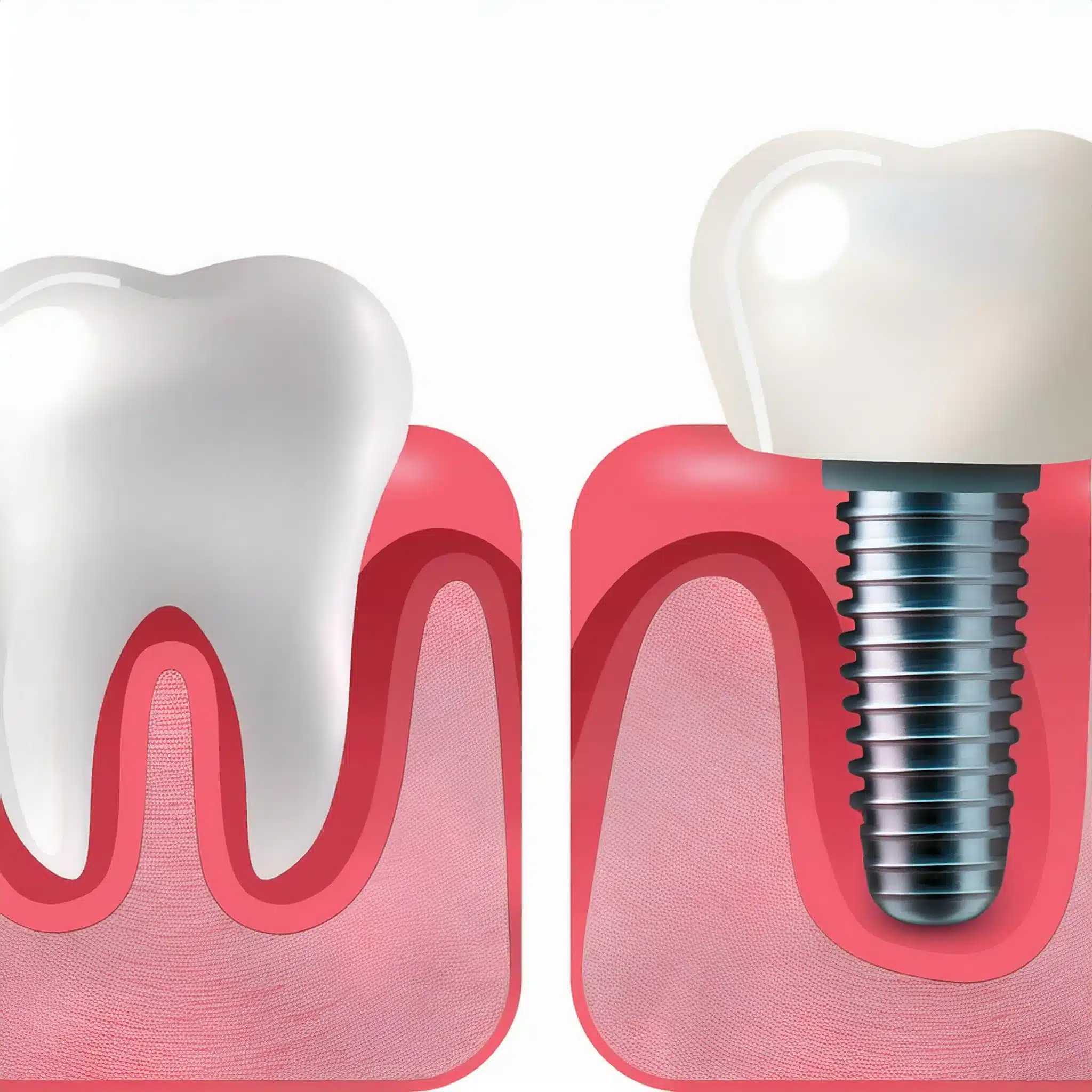
A lidhen implantet dentare me kancerin?
Hulumtimet tregojnë se implantet dentare nuk shkaktojnë kancer
Thënë kështu, hulumtimi i publikuar në American Journal of Implantology e çon një hap më tej dhe llogarit raportin e standardizuar të incidencës në 0.00017. Me fjalë të tjera, rreziku i zhvillimit të kancerit është shumë, shumë i ulët.
A janë të dhimbshme instalimi i implanteve dentare?
Procedura në vetvete nuk është e dhimbshme pasi kryhet me anestezi të përgjithshme ose lokale për të mpirë plotësisht gojën. Pas implantimit dentar, pasi mpirja të kalojë, pacienti mund të vërehet dhimbje të lehta. Personat që i nënshtrohen procedurës thonë se kjo dhimbje është më e vogël se dhimbja e nxjerrjes së dhëmbit.
A janë të mundshme implantet dentare me humbje kockore?
Po, njerëzit me humbje të rëndë kockore kanë të drejtë të marrin implante dentare. Në shumë raste, kjo mund të bëhet pa procedura të gjata të shartimit të kockave.
A janë implantet dentare të lëvizshme?
Kur keni nevojë për zëvendësim të shumë dhëmbëve ose për një hark të plotë, implantet dentare mund të përdoren si spiranca për të mbajtur një protezë (protezë) në vend. Vetë implantet janë të përhershme dhe proteza mund të jetë e fiksuar ose e lëvizshme.
A janë implantet dentare të suksesshme?
Në fakt, studimet kanë raportuar një shkallë suksesi prej 90 deri në 95 për qind të implanteve dentare gjatë një periudhe 10 vjeçare. Megjithatë, është gjithashtu e mundur që një implant dentar të dështojë në muajt ose vitet pas vendosjes së tij.
A janë implantet dentare të pasigurta?
Implantet dentare në përgjithësi nuk janë të dëmshme për trupin. Megjithatë, pacientët që janë alergjikë ndaj titanit mund të zgjedhin një alternativë efektive si zirkonia.
A janë të dukshme implantet dentare?
Pjesa e titanit e implantit nuk është e dukshme, pasi pjesa më e madhe e kësaj strukture qëndron nën sipërfaqe. Shtylla e titanit, e cila është pjesa e implantit që ndodhet nën sipërfaqe, nuk është e dukshme. Pjesa e dukshme e implantit përbëhet nga një kurorë porcelani, e cila duket dhe ndjehet si një dhëmb natyral.
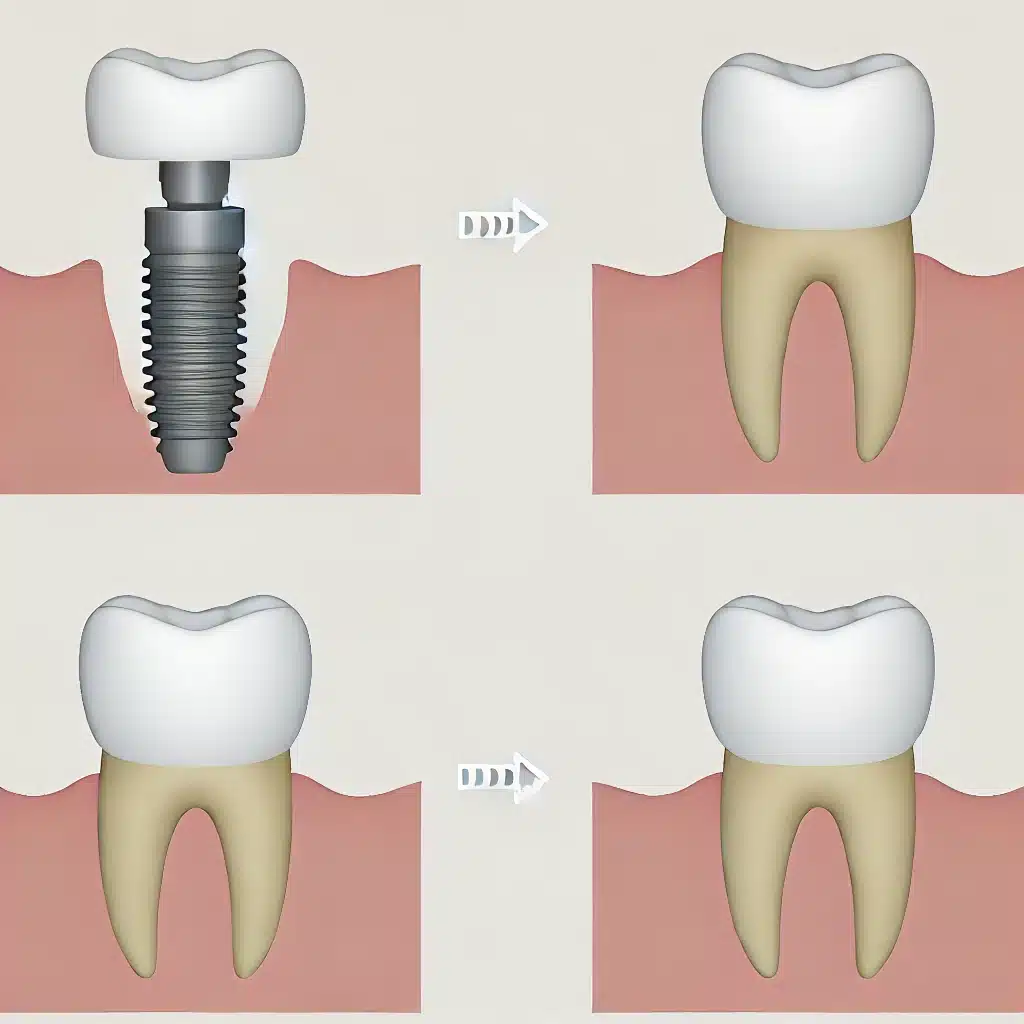
Pse implantet dentare…?
Pse implantet dentare janë kaq të shtrenjta?
Më poshtë janë disa nga arsyet kryesore pse implantet dentare janë të shtrenjta: Materialet. Implantet dentare janë bërë shpesh nga titani, një metal i fortë dhe i fortë që është biokompatibël. Është gjithashtu rezistent ndaj korrozionit dhe konsumit, duke e bërë atë një opsion afatgjatë për dhëmbët që mungojnë në krahasim me procedurat e tjera dentare.
Pse dalin implantet dentare?
Implantet dentare mund të bien për shkak të higjienës së dobët orale, humbjes së densitetit të kockave, kurorës së lirë, sëmundjes së mishrave të dhëmbëve ose kushteve mjekësore. Shenjat e një implanti dentar të lirshëm përfshijnë dhimbje, ënjtje, skuqje ose gjakderdhje të mishrave të dhëmbëve, humbje të dukshme kockore dhe një implant në lëvizje.
Pse dëmtojnë implantet dentare?
Meqenëse ky operacion përfshin futjen e një rrënje dhëmbi artificial në kockën e nofullës, pothuajse gjithmonë shkakton një sasi dhimbjeje.
Pse implantet dentare vazhdojnë të thyhen?
Përtypja e ushqimeve të forta ose presioni ekstrem mund të shkaktojë plasaritjen ose thyerjen e implanteve. Bruksizmi ose bluarja e dhëmbëve: Kjo gjendje mund të ushtrojë presion të panevojshëm mbi implantet dentare, duke çuar në dëmtim ose thyerje.
Pse implantet dentare janë të lirshme?
Shkaku më i zakonshëm i implanteve dentare të lirshme është mungesa e mbështetjes së kockave për të mbajtur implantin siç duhet në vend. Është thelbësore të vizitoni dentistin tuaj sa më shpejt të jetë e mundur nëse keni vënë re se implantet tuaja dentare janë liruar për t'u siguruar që ato të riparohen menjëherë dhe në mënyrë adekuate.
Pse janë të nevojshme implantet dentare?
Përveç ofrimit të përfitimeve shëndetësore, implantet dentare janë gjithashtu të rëndësishme sepse mund t'ju japin më shumë vetëbesim. Kur ju mungojnë dhëmbët, është e lehtë të ndiheni keq për pamjen tuaj dhe të mos buzëqeshni. Por sapo të keni kryer një trajtim implant dentar, mund të filloni të ndiheni mirë me pamjen tuaj.
Pse përdoren implantet dentare?
Përveç mbushjes së boshllëqeve në buzëqeshjen tuaj, implantet dentare përmirësojnë funksionin e përtypjes dhe shëndetin e përgjithshëm oral. Pasi të shërohen, implantet funksionojnë shumë si dhëmbët natyralë.
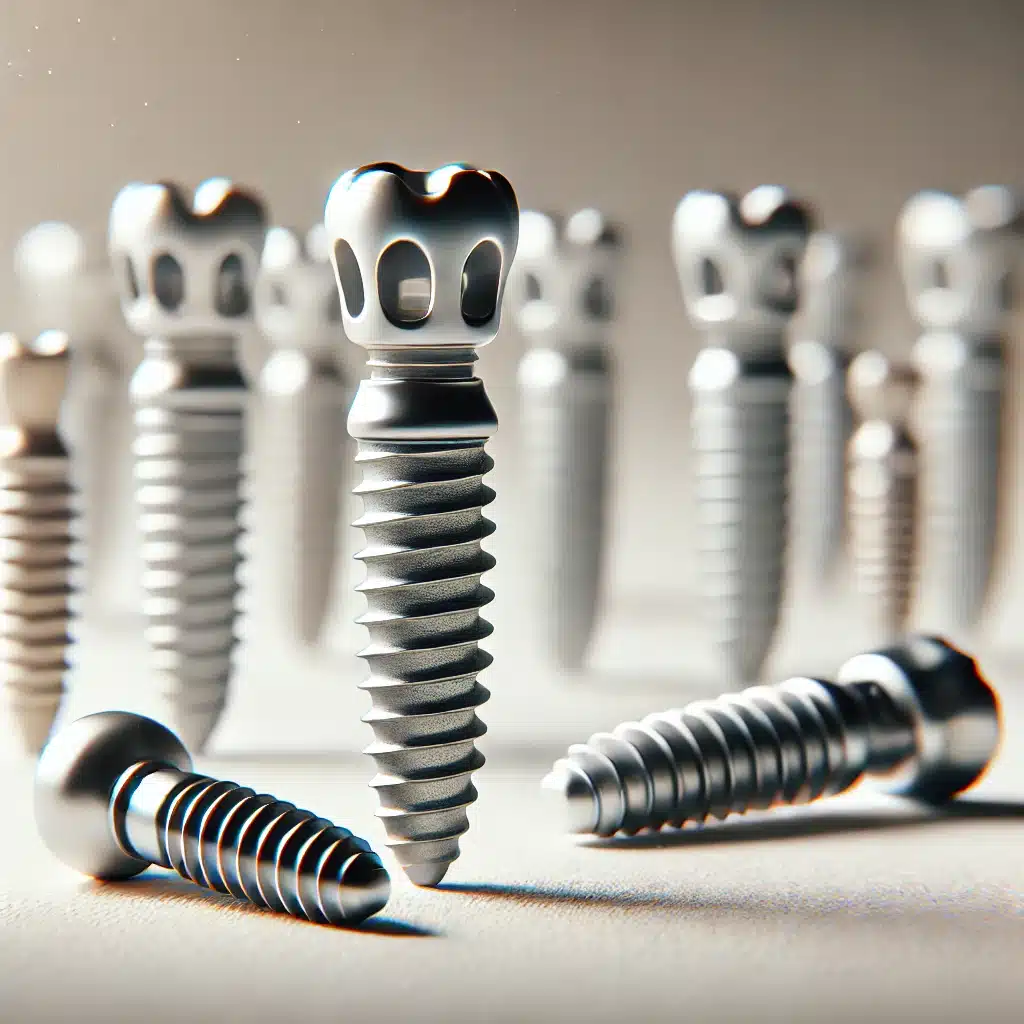
A munden implantet dentare…?
A mund të ndikojnë implantet dentare në zemrën tuaj?
Ndërsa ekziston ende një rrezik, problemet e zemrës të shkaktuara nga puna dentare janë shumë të rralla sot për shkak të përparimeve të industrisë dentare. Nëse nuk keni ndonjë problem me zemrën, atëherë puna dentare, duke përfshirë implantet dentare, mund t'ju mbrojë nga sëmundjet e zemrës.
A mund të ndikojnë implantet dentare në dëgjim?
Rastet e rënda të infeksionit të veshit për shkak të implanteve dentare mund të çojnë në vështirësi dëgjimi ose humbje dëgjimi. Shenjat dhe simptomat e infeksionit që duhet të keni kujdes përfshijnë si në vijim: Ënjtje.
A mund të zbardhen implantet dentare?
Materialet tradicionale zbardhuese janë shumë gërryese ose nuk do të kenë ndonjë efekt në implantet tuaja. Çdo përpjekje për të zbardhur ose zbardhur dhëmbët artificialë mund të dëmtojë edhe sipërfaqen e dhëmbit. Implantet janë shumë rezistente ndaj tendosjes, që do të thotë se nuk do të keni nevojë të zbardheni nëse jeni të kënaqur me ngjyrën tuaj natyrale.
A mund të shkaktojnë probleme implantet dentare?
Implantet dentare përfshijnë shpimin në kockën e nofullës, e cila potencialisht mund të dëmtojë nervat aty pranë. Kjo mund të çojë në mpirje ose ndjesi shpimi gjilpërash në buzë, mishrat e dhëmbëve, gjuhën ose zonën e mjekrës.
A mund të shkaktojnë implantet dentare tharjen e gojës?
Implantet dentare janë veçanërisht të dobishme për pacientët me tharje të lehtë të gojës, sepse ato nuk prishen.
A mundet që implantet dentare të dëmtojnë nervat?
Dëmtimi i nervit mund të ndodhë edhe pas vendosjes së implantit dentar. Për shembull, në disa raste, fiksimi i implantit mund të dëmtojë një nerv përmes ngjeshjes. Gjithashtu, mavijosjet dhe ënjtjet pas operacionit mund të bëjnë presion mbi nervat.
Me kujdesin e duhur, implantet dentare mund të zgjasin për një kohë shumë të gjatë - ndonjëherë edhe gjatë gjithë jetës. Ata nuk janë të prirur ndaj prishjes së dhëmbëve.
A mund të rregullojnë implantet dentare dhëmbët e shtrembër?
Jo, implantet dentare nuk janë një alternativë e mirë për mbajtëset. Vetëm implantet dentare nuk mund të rregullojnë dhëmbët e shtrembër ashtu siç munden telat. Megjithatë, implantet dentare mund të shkojnë krah për krah me mbajtëset, në mënyrë që këto implante të zëvendësojnë dhëmbët që mungojnë ku telat dhe kllapat e mbajtëseve mund të lidhen.
A mund të rregullojnë implantet dentare mbi kafshimin?
Implantet dentare gjithashtu mund të luajnë një rol në korrigjimin e teprimeve, megjithëse zbatueshmëria e tyre ndryshon.
A mund të lëvizin implantet dentare me mbajtëse?
Implantet dentare nuk mund të lëvizin pasi të jenë vendosur në gojën tuaj, që do të thotë se edhe me trajtimin ortodontik, vetë implantet nuk do të lëvizin.
A mund t'ju helmojnë implantet dentare?
Implantet dentare që mbingarkohen ose i nënshtrohen forcës së tepërt mund të shkaktojnë humbje kockore dhe dështim të implantit. Kjo gjithashtu mund të rezultojë në lirimin e joneve metalike dhe grimcave të tjera në indet përreth, duke çuar në inflamacion dhe toksicitet.
A mund të kualifikohen implantet dentare për zbritje tatimore?
Implantet dentare klasifikohen si shpenzime mjekësore kur ato janë të nevojshme për shkak të humbjes së dhëmbit nga një dëmtim ose sëmundje. Në raste të tilla, individët mund të kenë të drejtë t'i zbritin këto kosto nga taksat e tyre. Megjithatë, nëse qëllimi i trajtimit është vetëm kozmetik, ai zakonisht nuk kualifikohet për zbritje tatimore.
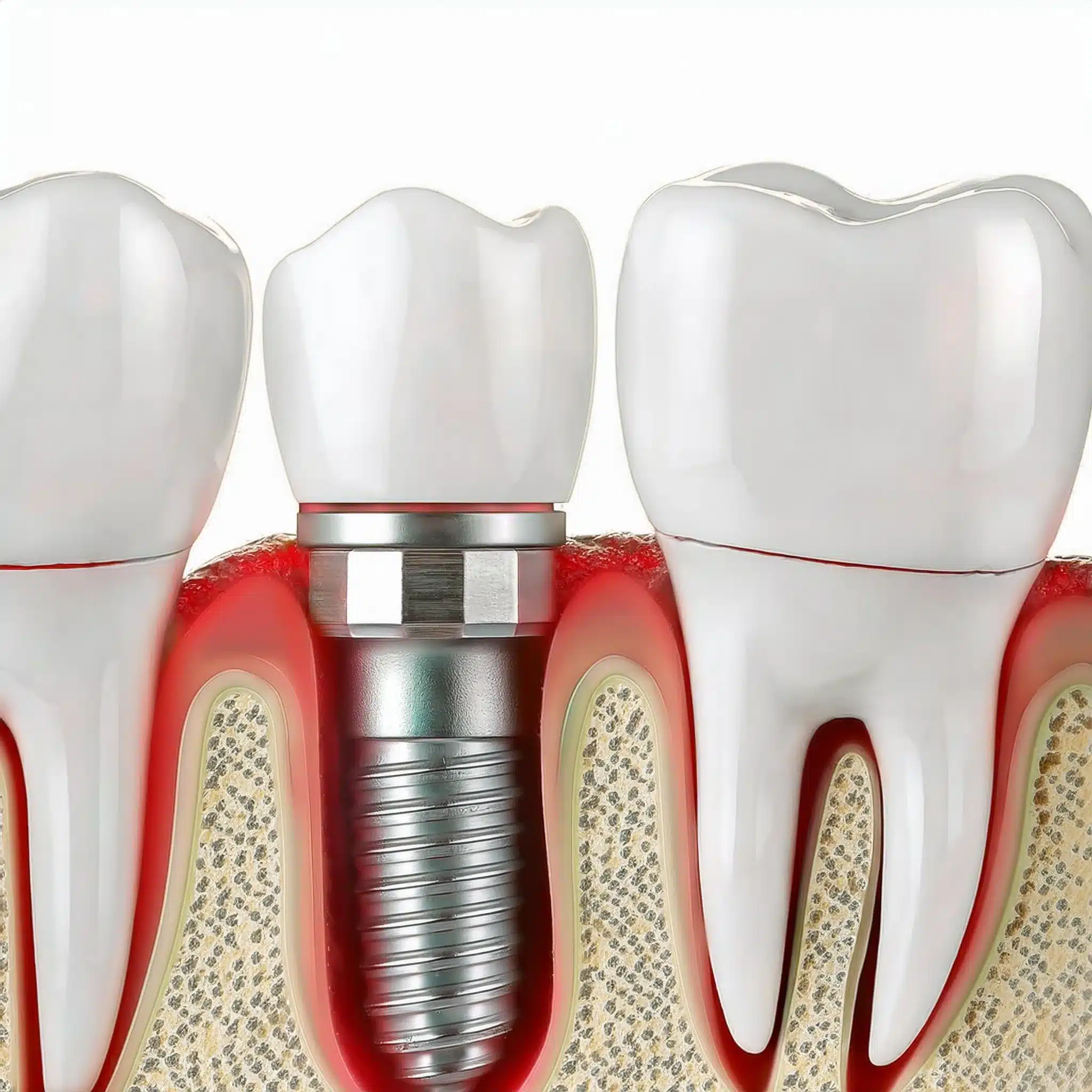
A mund të zëvendësojnë implantet dentare protezat?
Implantet dentare janë alternativa moderne për protezat. Duke zëvendësuar protezat tuaja me implante dentare, më në fund mund të keni një zgjidhje të përhershme për dhëmbët që ju mungojnë.
A mund të shkaktojnë implantet dentare nevralgjinë trigeminale?
Neuropatia e dhimbshme post-traumatike trigeminale (PTTN) është një ndërlikim i njohur i terapisë së implantit dentar. Përveç rasteve që rezultojnë të dëmtimit të nervit gjatë operacionit ose vendosjes së implantit, disa pacientë raportojnë simptoma të vonuara të ngjashme me neuropatinë vetëm pas ngarkimit të implantit, p.sh. vendosjes së kurorës.
A mund të shkaktojnë implantet dentare sëmundje autoimune?
Megjithëse hulumtimi nuk është përfundimtar, disa kërkime sugjerojnë se metali i përdorur për implantet dentare mund të shkaktojë një reaksion autoimun te pacientët që janë alergjikë ndaj disa metaleve ose janë të predispozuar gjenetikisht ndaj sëmundjeve të caktuara, duke përfshirë: Sklerozën e shumëfishtë. Lupus.
A mund të zhvidhosin implantet dentare?
Nëse e dimë markën e implantit dentar, ne jemi në gjendje të përdorim drejtuesin e duhur për të "zhvidhosur" në mënyrë efektive implantin. Kjo është mënyra më e shpejtë dhe më e lehtë për të hequr një implant dentar.
